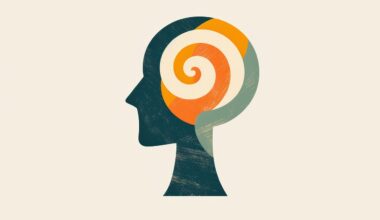Caffeine, Sleep Hygiene, and Hormonal Disruption
Caffeine is a popular stimulant that millions of individuals consume daily. Found naturally in coffee, tea, and cacao, caffeine can significantly affect our body’s hormonal balance, especially when consumed in the evening. Its stimulating effects can lead to prolonged wakefulness, delaying sleep onset. As sleep hygiene improves, maintaining consistent sleep patterns becomes essential. If caffeine intake is high close to bedtime, it can disrupt sleep architecture. This disruption can negatively impact hormonal secretion, specifically cortisol and melatonin. Hormones like cortisol keep you alert, while melatonin regulates sleep cycles. Elevated cortisol levels, often a result of caffeine consumption, can interfere further with the body’s ability to wind down for the night. Thus, creating a good sleep environment is crucial to maintaining hormonal equilibrium. To support optimal sleep hygiene, one should consider timing caffeine intake earlier in the day. Limiting consumption to the morning or early afternoon can ensure better sleep quality. Quality sleep is a fundamental pillar for overall hormonal health. It enables the body to restore, rejuvenate, and maintain balance. Understanding the importance of this timing is vital for achieving better sleep and hormonal health.
Incorporating good sleep practices is essential for hormonal health. Sleep hygiene is defined by habits and practices that allow for quality sleep, which includes consistent sleep schedules, temperature control, and a comfortable sleep environment. Disruptive caffeine consumption can hinder these practices. The impact of caffeine varies among individuals due to genetic variations in metabolism. Some metabolize caffeine quickly and experience fewer sleep disruptions. Others may be super-sensitive, leading to chronic sleep issues. Moreover, the timing of caffeine intake profoundly affects both sleep and hormonal levels. While moderate caffeine consumption is generally deemed safe, excessive intake close to sleep can lead to adverse effects. Those striving for hormonal balance must prioritize understanding these variables. Certain health conditions, like chronic insomnia and anxiety, further complicate caffeine’s effects. Conflicting lifestyles, including late-night work schedules, make it crucial to monitor caffeine habits. Studies have shown that even moderate caffeine consumption can result in delayed sleep times, altering cortisol and melatonin levels. To combat this, one can experiment with gradual caffeine reduction, paving the way for improved sleep quality. By actively engaging in good sleep hygiene, individuals can better support their hormonal health, while ensuring rejuvenation during nighttime rest.
The Sleep-Caffeine Connection
Examining the connection between sleep and caffeine reveals critical insights into our overall health. Poor sleep leads to heightened stress and increased cortisol levels, which can further result in hormonal imbalance. When individuals consume caffeine, its stimulating properties can worsen these conditions and disrupt sleep cycles. The relationship between caffeine consumption and sleep isn’t merely anecdotal; numerous studies substantiate the negative impact of caffeine on sleep quality. This correlation becomes particularly evident among those consuming caffeine later in the day. Research shows that consuming caffeine six hours before bedtime can reduce overall sleep time and increase wakefulness. Furthermore, longevity studies indicate that poor sleep is linked with chronic health issues, including obesity and cardiovascular disease, showing how intertwined sleep hygiene is with general health. Quality sleep, which can be disrupted by evening caffeine, is crucial for hormone regulation, mood stabilization, and cognitive performance. Thus, understanding the sleep-caffeine connection is paramount for choosing lifestyle changes that support a balanced hormonal system. Prioritizing optimal sleep hygiene can pave the way towards improved hormonal function, reduced stress levels, and enhanced well-being.
It’s essential to explore caffeine’s effect on sleep and hormonal balance deeply. It’s common knowledge that caffeine can increase alertness, but this comes at a significant cost, particularly concerning sleep hygiene. Quality sleep is crucial for hormone regulation, directly influencing stress, growth, and reproductive hormones. For effective management, being aware of how each person’s body will respond to caffeine is imperative. On average, the half-life of caffeine is around five to six hours, meaning that each cup can linger in your system. Therefore, consuming coffee or energy drinks later in the day may appear harmless; however, the accumulative effects on sleep can be detrimental. For those keen on maintaining hormonal balance, creating personalized schedules that include caffeine cut-off times is wise. Similarly, integrating caffeine-free days or weeks into one’s routine can bolster awareness of its nuances and promote improved health outcomes. It’s also advisable to rotate between caffeinated and non-caffeinated beverages during the week, enabling a gradual withdrawal and adjustment period. Paying attention to these practices can significantly enhance hormonal health and yield more regular and restorative sleep patterns over time, promoting overall awareness of this health relationship.
Strategies for Optimal Caffeine Consumption
To minimize the adverse effects of caffeine on sleep and hormonal health, several effective strategies can be implemented. First and foremost, tracking daily caffeine intake can shed light on how much one consumes and its timing. A consistent and structured plan should limit caffeine mostly to mornings and early afternoons, ensuring that any potential stimulating effects won’t impede necessary sleep. To complement this, cultivating effective sleep hygiene practices, such as designing a dark and cool sleep environment, can enhance rest. It’s also essential to focus on nutrition. Opting for nutrient-dense foods during the day can sustain energy levels and reduce reliance on caffeine. If cravings kick in, consider swapping caffeinated drinks for herbal teas or decaffeinated alternatives. Additionally, incorporating relaxation techniques before bed can further counteract caffeine’s stimulating effects. Mindfulness practices, such as yoga or meditation, can establish calming pre-bedtime routines. Staying hydrated and consuming adequate water during the day helps mitigate caffeine’s dehydrating effects and enhances overall well-being. These strategies, when paired together, facilitate a foundational shift towards greater sleep quality and improved hormonal balance, all while enjoying caffeine mindfully.
Moreover, regular physical activity contributes significantly to sleep hygiene and hormonal balance. Engaging in exercise increases endorphins, lowers stress levels, and promotes better sleep quality, subsequently regulating cortisol levels in the body. Those who incorporate consistent aerobic activity, especially in the morning, may find that their reliance on caffeine diminishes as their energy levels stabilize naturally. Maintaining such an active lifestyle ultimately creates a complementary balance between sleep and caffeine consumption. It’s critical to find a tailored exercise routine that resonates well with personal preferences, which can make the process enjoyable. Activities like walking, cycling, or yoga can effectively ground the body and mind. Experimenting with exercise types helps identify what optimally supports both energy levels and relaxation needs. Therefore, balance becomes attainable; in turn, caffeine consumption can become less of a necessity. Thus, integrating regular movement is an impactful strategy for fostering not only improved sleep but also overall hormonal health. Through embracing movement, individuals can appreciate heightened energy levels without excessive caffeine, empowering their journey towards achieving both fitness and hormonal stability.
Conclusion: Caffeine Awareness for Hormonal Balance
Understanding the relationship between caffeine and hormonal balance is essential for optimal health. By recognizing its effects on sleep hygiene, individuals can make informed decisions, leading to enhanced well-being. Caffeine’s role as a stimulant can be both beneficial and detrimental, depending on timing and quantity. Individuals aiming for optimal hormonal health should become more mindful of their caffeine consumption patterns. This includes being aware of personal sensitivity and adjusting habits accordingly. Keeping caffeine intake to earlier hours and fostering proactive sleep hygiene can lead to better hormonal regulation. Ensuring quality sleep is crucial for restoring energy levels and overall health. As this exploration reveals, establishing a careful balance between caffeine, sleep hygiene, and fitness habits fosters a pathway to well-being. While caffeine will always have its place, moderation and awareness should govern its usage. The journey towards hormonal health ultimately leads to improved energy levels, mood stability, and overall vitality. As such, individuals should embrace an integrated approach that prioritizes sleep hygiene, mindful caffeine consumption, and a fitness routine, emphasizing the significance of cultivating lasting balance in life.
Further research continues to highlight the intricate connections between caffeine consumption and hormonal health. As awareness grows regarding the hormones’ influence, individuals seeking balance must continually educate themselves. Adopting lifestyle changes with an emphasis on sleep hygiene can revolutionize how caffeine is perceived and consumed. Moreover, fostering a supportive environment promotes healthy habits and collective wellness. Emphasizing open discussions about habits reduces stigma surrounding caffeine consumption. Learning to listen to one’s body can cultivate deeper feedback loops, guiding individuals toward better health choices. Utilizing this knowledge, one can create supportive networks whereby accountability plays a key role in cultivating desirable habits. Over time, individuals can reflect on their caffeine-induced experiences, paving their paths toward sustainable lifestyles. Ultimately, caffeine’s impact is a personal journey, unique to each individual, reinforced by environmental and genetic factors. As understanding and awareness grow about how best to navigate caffeine consumption, momentum builds for a healthier society. In conclusion, approaching caffeine with education and mindfulness offers the potential for profound changes in one’s health journey, highlighting the importance of harmonizing caffeine intake, sleep hygiene, and fitness for optimal hormonal health.


